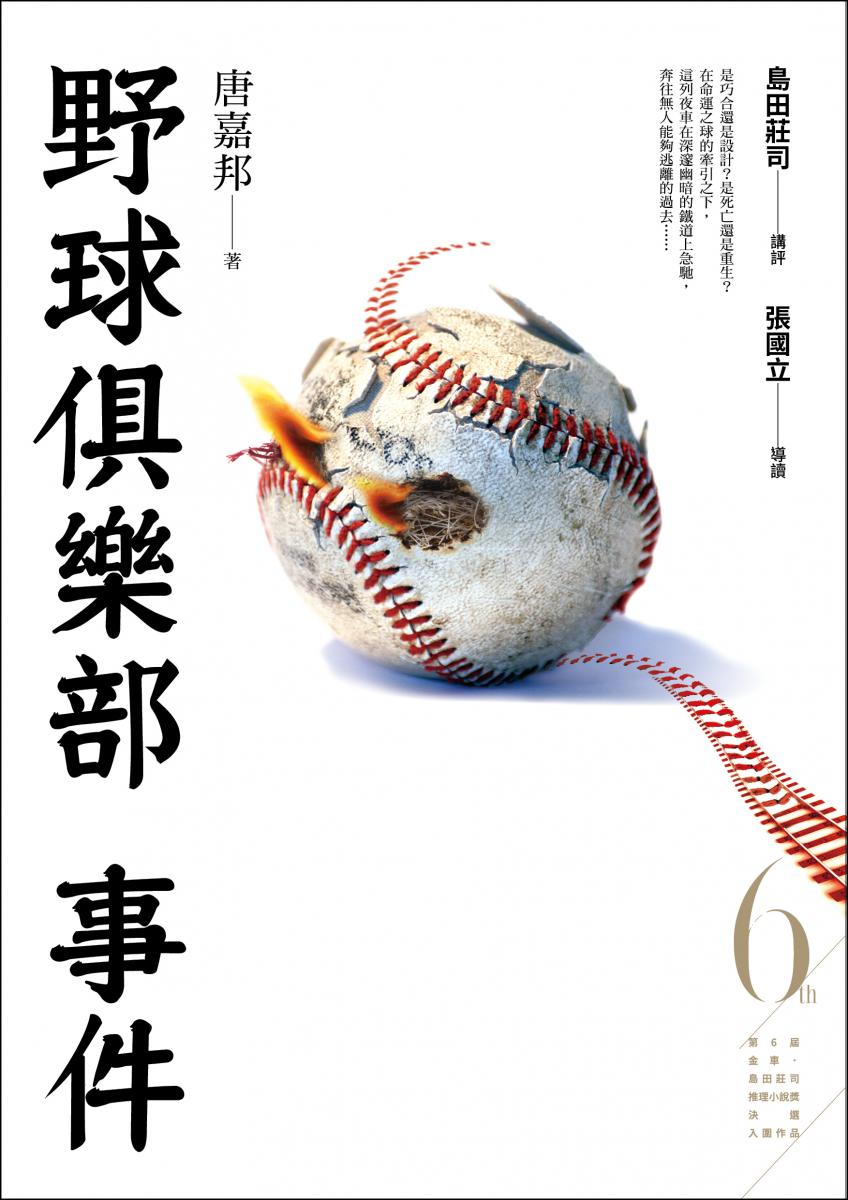The Baseball Club Murder is one of three TAICCA Select titles in Books from Taiwan Issue 13 and the recipient of the 2019 King Car Soji Shimada Mystery Award.
On the evening of October 31st, 1938, a body is found on a train travelling the Shinten railway line. The deceased, Chen Chin-Shui, a businessman from Banka, died clutching a bottle of Hakutsuru sake. Early the following morning a train out of Taipei pulls into Kaohsiung, the final stop of the West Coast Line. On board is the lifeless body of Fujishima Keizaburo, president of a Japanese trading company, a knife protruding from his chest. A baseball fan club, the Ballgame Association, where both men were members, is the only link between two cases from opposite corners of Taiwan. The victims met there through their mutual interest in baseball, but repeatedly clashed over their differing views and social backgrounds. While investigating the death of Cheng Chin-Shui, detective Li Shan-Hai of the Taipei South Police Department’s Criminal Investigation Department begins to suspect that the murder of Keisaburo Fujishima some 400 kilometers away may be the key to cracking his own case. As the investigation deepens, this case that hinges on the complex relations between Japanese and Taiwanese people in colonial Taiwan leads Detective Li all the way back to the Tapani Incident of 1915, an armed uprising of Taiwanese locals against Japanese imperial rule.

The Baseball Club Murder
Author Tang Chia-Bang, a baseball fanatic and former news reporter, says the story was brewing in his mind for many years before he finally took time away from freelance journalism to write this, his first work of fiction. The major awards the book eventually garnered were the furthest thing from his mind when he started. At the banquet for the Soji Shimada Award, Tang said, “My first thought was just to write something to share with a few friends.” Perhaps it is the purity of this original intention that allowed Tang to complete a 100,000 word manuscript that seamlessly integrates baseball, railroads, and Taiwan’s colonial history into the structure of a classic crime novel.
Of these three elements, history is paramount. Taiwan of 1938 was a colony of Japan – spoils of the First Sino-Japanese War – and would remain so until the end of the Second World War. The evolving relations between colonizer and colonized, initially characterized by armed resistance but later giving way to the détente of mutual prosperity, are distilled within the novel into the murders of two men, the detective investigating the case, and the villain whose identity is obscured within this murky and contentious mix.
In Taiwan, baseball is a miraculous sport. Now the country’s “national sport”, it was first introduced to Taiwan by the Japanese and gradually took root in the lives of the local people. The sport became a cross-cultural meeting point, a space for interactions on a relatively equal footing, and, for some, an opportunity to completely transform one’s social status. The Kyumikai Club of the novel provides these same functions, but are the conflicts in the club just the usual tussle of competing interests? Or are they a deep running personal vendetta that provides the motive for the crime? The railway setting provides a distant echo of these processes of cultural assimilation (no nation has embraced the subgenre of travel mysteries like Japan), while also being implicated in the novel’s numerous intrigues and puzzles. Like baseball, the development of Taiwan’s railways is intimately linked to Japan, and equally Japanese crime fiction has had a deep impact on Taiwanese readers and writers. That the novel received the Soji Shimada Award may be the greatest acknowledgement of this complex heritage.